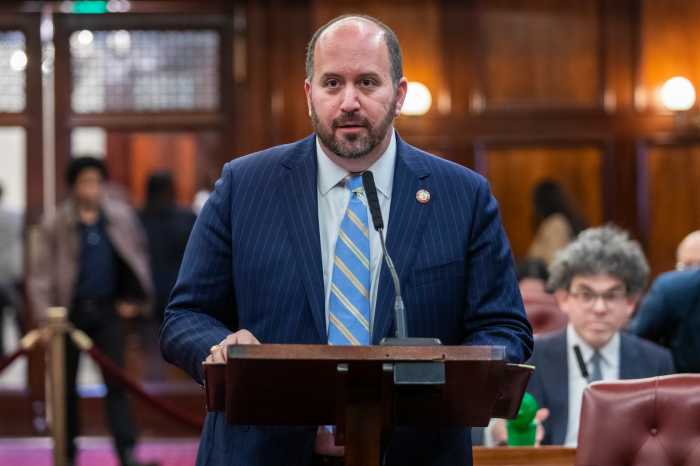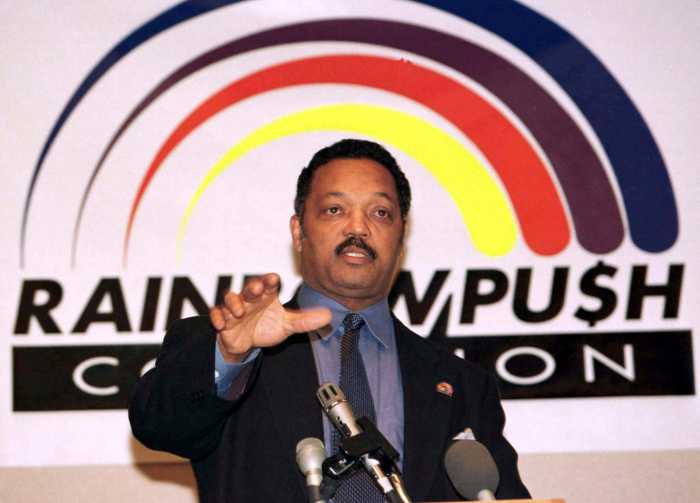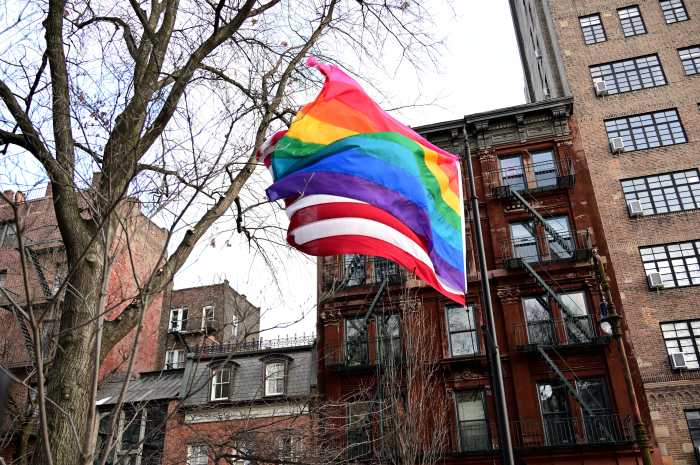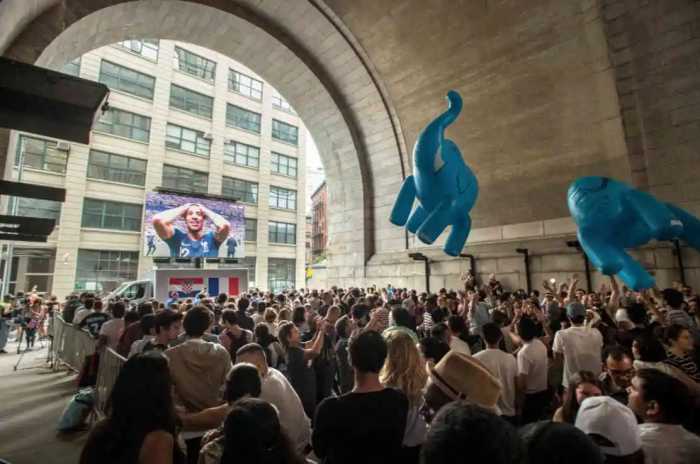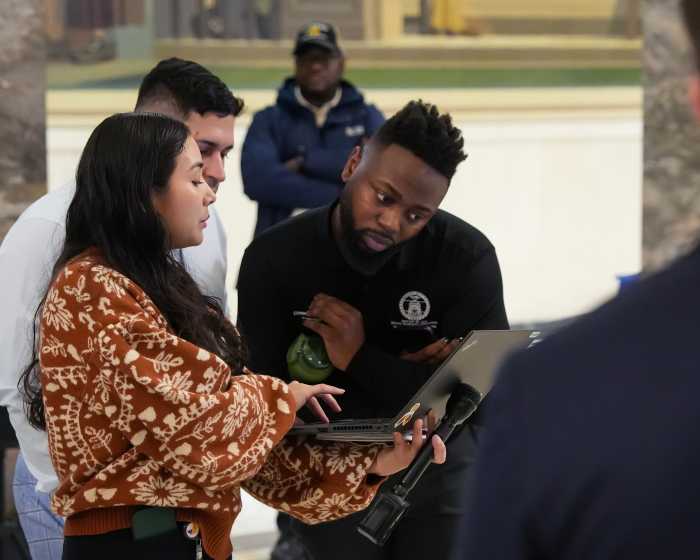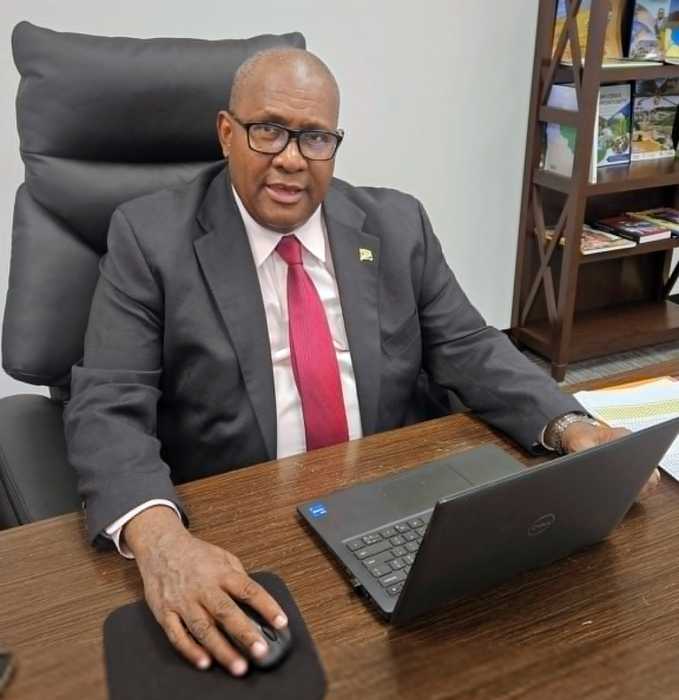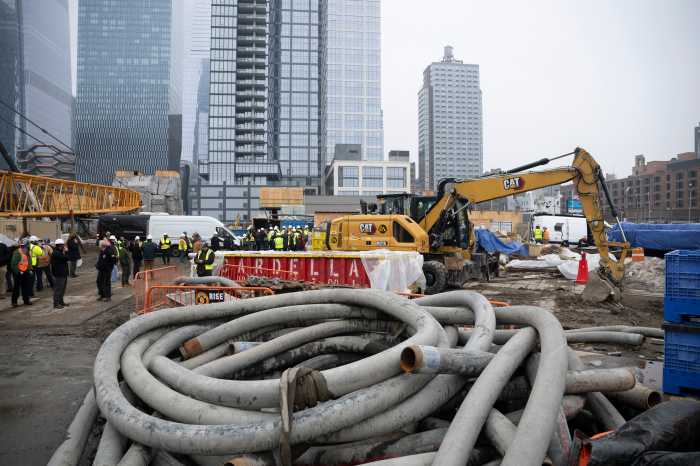NYS Black Gay Network leads clergy, political leaders at Riverside Church rally
On Sunday, July 31, leaders in the gay and lesbian community, clergy members and elected officials hosted a meeting at Riverside Church to call attention to a series of violent attacks against African-American lesbian, gay and transgendered people in what the event’s organizers are calling a state of emergency.
In the first half of this year, two particularly brutal crimes garnered the city’s attention. On June 8, three men attacked Dwan Prince, a building porter, on a Brooklyn street. The three shouted anti-gay epithets and punched, kicked and stomped the 27-year-old victim, who is HIV-positive, leaving him semi-paralyzed after he emerged from a coma in Brookdale Hospital. Steve Pomie has been arrested in the case and faces bias-related assault charges. The two other men are still being sought by police.
On February 17, transit workers discovered the dismembered arm and two legs of Rashawn Brazell, a 19-year-old murder victim, stuffed in a plastic bag on subway tracks in Bushwick, Brooklyn. A week later, Brazell’s torso was discovered at a Greenpoint recycling plant. His other body parts are still missing and police have yet to discover the scene of the gruesome dismemberment. The murder remains unsolved and his mother, Desire Brazell, a social services worker, has become—like mothers of other slain gay and lesbian children—an advocate for tolerance and non-violence. Brazell attended Sunday night’s gathering in Riverside’s Assembly Hall, but left early after becoming overcome with emotion.
Following the attack on Prince, community leaders already alarmed by the Brazell murder, began a large-scale mobilization to heighten the public’s awareness of the crimes and the fact that in recent years many African-American LGBT people have suffered violent ends at the hands of homophobic attackers.
Community leaders have begun to speak out against what they consider to be homophobic messages conveyed by some black ministers in mainstream Christian churches and insensitivity or outright indifferences on the part of other ministers and elected officials across the city when they learn of incidents of homophobia and anti-gay violence.
Speakers at Riverside Church said that when clergy and politicians voice anti-gay sentiments or even indifference, they inflame underlying biases toward gay and lesbian people.
Brazell was among 10 victims highlighted in video clips shown during the evening’s program.
Speakers on Sunday evening included Manhattan Borough President C. Virginia Fields, a Democratic mayoral candidate; Manhattan City Councilman Bill Perkins, who is running to succeed Fields; Arun Gandhi, the grandson of Mahatma Gandhi, who founded the M.K. Gandhi Institute for Nonviolence; Krishna Stone, the communications director of the Gay Men’s Health Clinic; Reverend Valerie Holly of the Unity Fellowship Church, and Reverend Sylvia Rhue of the National Black Justice Coalition, as well other religious and community leaders.
Speakers sought to mobilize the city’s black lesbian, gay, bisexual and transgendered community against the religious right’s homophobia.
Kenyon Farrow, an official with the New York State Black Gay Network, addressed the gathering and stressed the importance of leaders in the wider African-American community combating the religious right’s attempt to promote homophobia from the pulpit.
Sylvia Rhue, from the National Black Justice Coalition said, “We are fighting a religious war and using secular tools to do it, and it isn’t working.”
The event was particularly timely as it came just weeks after Rev. Willie Wilson, a black minister in Washington, D.C., made graphic and disparaging descriptions of the sexual relations of lesbians and gay men and declared, “Lesbianism is about to take over our community.”
The comments prompted many African-American leaders to call for his resignation or dismissal as executive director of the Millions More Movement march, a national black civil rights event called by Nation of Islam leader Louis Farrakhan.
Wilson’s comments, among others, inspired the sentiment that the religious right has hijacked the message of Jesus Christ. As Rhue reminded the audience, “Love your neighbor is the centrality of Christ’s message.” More importantly, she continued, “Love is the engine of the universe and cannot be boiled down to tab A goes into Slot B,” as Wilson implied in his comments.
Gandhi’s message also called on Christianity to return to its base of acceptance and tolerance and to “stop talking how good it is and start living it.” Gandhi said, “It is time to transform it.” Gandhi cautioned the audience, “If we do not bring about a culture of nonviolence, we will be doomed as human beings.”
In speaking more specifically about gay rights, Gandhi related his personal experience of discrimination to the struggle of the black LGBT community. “I was a victim of color prejudice in South Africa,” he told the audience. He ended his remarks on an upbeat note, calling on the community to “transform those who are ignorant.”
Stone somewhat departed from the tone of previous speakers, calling on church communities to be more holistic in its approach. She urged people to get up and say, “I want to leave your church and not return until we have a clergy that addresses the confluence of health, spiritually, and sexuality.”
Stone warned the audience that, “it may be hazardous to your health if you don’t.” What we really need, she added, is “an altar that has safe-sex kits.”
Farrow, who introduced the video memorial, spoke the most specifically about the victims and encouraged the audience to “take notice of each other, whether we are on Christopher Street or not.”
The concept of taking notice was an undercurrent throughout the program as many pointed out that crimes against LGBT people of color go unnoticed or are seen as “invisible crimes.”
Farrow closed his remarks by asking the audience to “think about these people and their lives.
“Think about their families and the larger community,” he said.
gaycitynews.com

